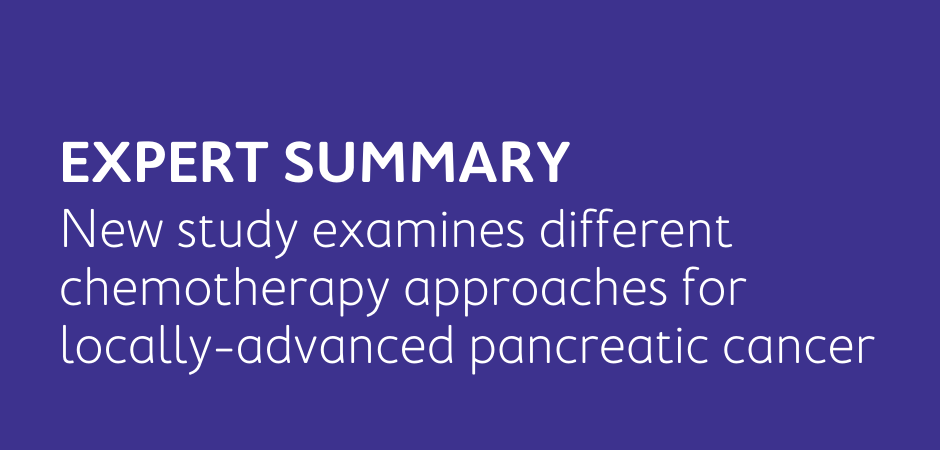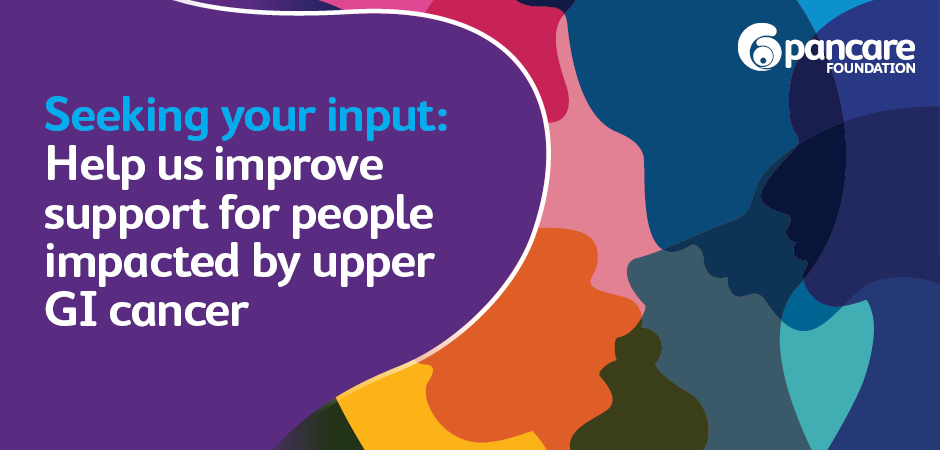
Key messages from Kunzmann et al. Lancet Gastroenterol Hepatol 2021; 6: 128–38
- This recent well-designed study examined the effects of various chemotherapy regimens for treatment of locally inoperable pancreatic cancer.
- Whether patients received the two-chemotherapy regimen alone or the two-chemotherapy regimen followed by an additional three-chemotherapy regimen did not alter the outcomes.
- The study showed that about 30% of patients may become suitable for surgical treatment after such chemotherapy approaches
Discussion points from expert reviewer, Professor Peter Gibbs
For patients with a locally advanced pancreas cancer (a cancer that has not spread to other parts of the body but cannot be removed with surgery) researchers have been exploring a variety of strategies to shrink these cancers and, in doing so, potentially making these operable.
There are two broad strategies that have been tested: chemotherapy alone and chemotherapy given with radiotherapy. Chemotherapy approaches have included a two-chemotherapy regimen (gemcitabine plus nab-paclitaxel) and a three-chemotherapy regimen called FOLFIRINOX (5fluouracil plus irinotecan plus oxaliplatin). Up until now there have been no conclusive data as to which is the best strategy, with most experts recommending initial chemotherapy alone.
In this recent trial the researchers enrolled patients with locally advanced pancreas cancer and randomised them to receive the two-chemotherapy regimen alone versus a strategy of initially giving the same chemotherapy followed by the three-chemotherapy regimen, with all patients then being considered for surgery.
The results of this study showed that there is no benefit from the sequential strategy, with no more patients being able to undergo surgery and no difference in long-term survival outcomes. So, treatment will remain as the two-chemotherapy regimen or the three-chemotherapy regimen, to be followed by surgery, if possible.
About Professor Peter Gibbs, Pancare Medical Advisor

Prof Peter Gibbs is a clinician-scientist with a clinical and research focus on gastrointestinal cancer. He is a medical oncologist at the Western Hospital in Melbourne, where he has led many clinical trials, including large international randomised studies. He has over 300 research publications and is a regular speaker at national and international conferences. He is a laboratory head and divisional director at the Walter and Eliza Hall Institute, where the three major areas of interest are (i) studies of circulating tumour DNA as a cancer biomarker, (ii) studies of tumour derived organoids to guide treatment choice and (iii) clinical registry-based research, including registry-based trials. He is supported by an outstanding team of clinician researchers, research nurses and data managers who are all working to deliver better outcomes for patients with pancreas and other cancers.
Reference
Kunzmann V, Siveke JT, Algül H, Goekkurt E, Siegler G, Martens U, Waldschmidt D, Pelzer U, Fuchs M, Kullmann F, Boeck S, Ettrich TJ, Held S, Keller R, Klein I, Germer C-T, Stein H, Friess H, Bahra M, Jakobs R, Hartlapp I, Heinemann V, on behalf of the German Pancreatic Cancer Working Group (AIO-PAK) and NEOLAP investigators. Nab-paclitaxel plus gemcitabine versus nab-paclitaxel plus gemcitabine followed by FOLFIRINOX induction chemotherapy in locally advanced pancreatic cancer (NEOLAP-AIO-PAK-0113): a multicentre, randomised, phase 2 trial. Lancet Gastroenterol Hepatol 2021; 6: 128–38.
Read more . . .






